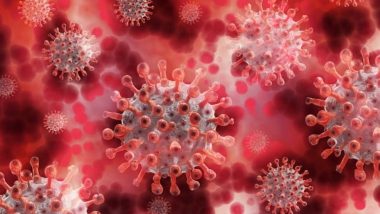Kozhikode, September 12: The Department of Health in Kerala, India, has raised an alarm in the Kozhikode district following two suspected deaths attributed to the Nipah virus. Samples taken from deceased individuals and those displaying similar symptoms have been dispatched to the National Institute of Virology in Pune for conclusive testing. Authorities have identified and closely monitor individuals who had contact with the deceased and those at higher risk.
In the event of Nipah virus confirmation, stringent measures, including restrictions on social gatherings and events, will be implemented in the affected regions. Health department officials disclosed that two patients, one on August 30 and the other on September 11, met their demise at the same Kozhikode hospital. Amidst these developments, it is crucial to explore Nipah virus, its origins, symptoms, and preventive measures. What Is Hong Kong Flu? As H3N2 Virus Hits Karnataka, Uttar Pradesh, Know Its Symptoms, Causes, Treatment and Preventive Measures.
Understanding Nipah Virus
Nipah virus (NiV) is a zoonotic virus that can be transmitted from animals to humans and can also spread through human-to-human transmission. It was first identified in 1998 during an outbreak in Malaysia and Singapore. The virus is named after the Malaysian village where it was first recognised. Nipah Virus is primarily found in fruit bats (flying foxes) but can infect various animals, including pigs and other livestock. When humans come into contact with infected animals or contaminated environments, they can contract the virus. Pandemic Scare: New Strains of Influenza A Virus Found in Pigs Raise Pandemic Risk.
Symptoms
Nipah virus infection can range from asymptomatic (no symptoms) to severe, with symptoms typically appearing within 3 to 14 days after exposure. Common symptoms include fever, headache, muscle pain, vomiting, and sore throat. As the infection progresses, it can lead to encephalitis (inflammation of the brain), which can cause seizures and altered mental states. In severe cases, Nipah virus infection can be fatal, with a mortality rate ranging from 40% to 75%.
Causes
The virus is primarily transmitted to humans through close contact with infected animals, their secretions, or contaminated fruits and surfaces. Human-to-human transmission can occur through direct contact with the blood, secretions, or other bodily fluids of infected individuals. Prolonged close contact with infected individuals, such as caring for them without appropriate precautions, increases the risk of transmission.
Treatment
Currently, there is no specific antiviral treatment for Nipah virus infection. Supportive care, including hydration and medication to manage symptoms, is the main approach. Patients with severe cases often require intensive care. Experimental treatments and vaccines are under development but have not yet been widely deployed.
Preventive Measures
Preventing Nipah virus infection involves avoiding contact with infected animals and their secretions. People in areas where the Nipah virus is known to be present should avoid consuming raw date palm sap, as it can be contaminated with the virus by bats. Strict hygiene practices, such as thorough handwashing and proper sanitation, can also reduce the risk of transmission. In outbreak situations, isolation of infected individuals and strict infection control measures are crucial to prevent further spread.
(The above story first appeared on LatestLY on Sep 12, 2023 03:00 PM IST. For more news and updates on politics, world, sports, entertainment and lifestyle, log on to our website latestly.com).













 Quickly
Quickly






















